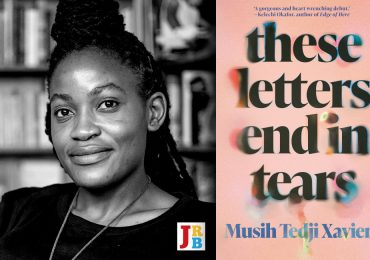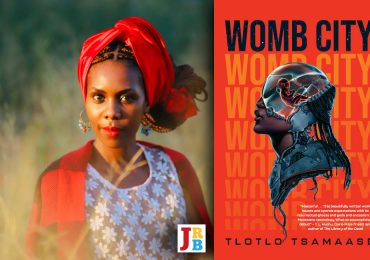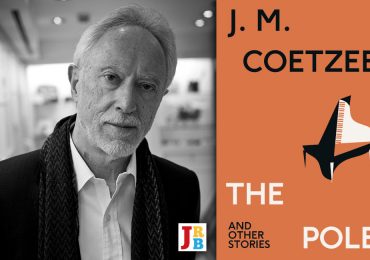Mohsin Hamid’s new book, Exit West, is a work of speculative fiction that will be read as ‘The Great Migration Novel’, but it is a much more subtle achievement, writes Wamuwi Mbao.
 Exit West
Exit West
Mohsin Hamid
Hamish Hamilton, 2017
It is tempting to praise Mohsin Hamid’s novel Exit West simply for what it says about the plight of refugees making their way to the developed world. The latest work from the Booker Prize-nominated author of The Reluctant Fundamentalist is a work of speculative fiction, to be sure, and like most works in that well-populated field it draws its themes from what is most distressing or perturbing about the present. But where many in the genre are preoccupied with the work of making the ordinary seem spectacular (not an especially difficult conjuring trick), Exit West avoids being prolix because it doesn’t need to strip away the cladding from the everyday.
Indeed, Hamid’s novel is disarmingly simple. Not so much sparse as minimalist, Exit West never gives the impression that the author is overly exerting himself. It runs to nearly 230 pages, but it reads like a much shorter novel. The narration is spare and restrained, dialogue infrequent, and detail is pruned back to its essentials. The story begins in an unnamed city ‘swollen by refugees but still mostly at peace, or at least not yet openly at war’. We are introduced to the two characters around whom the narrative will revolve, Saeed and Nadia. But rather than filling in these outlines, Hamid allows the story to do the work. It suffices for us to know that Saeed ‘had a beard, not a full beard, more a studiously maintained stubble’, and that Nadia ‘was always clad from the tips of her toes to the bottom of her jugular notch in a flowing black robe’.
The opening act is sketched quickly, but with flecks of expressivity that lend what we read the personable texture of a fable rather than the superficial slickness of a cinematic take. The two characters are living normal lives in the midst of a world whose boundaries are being steadily perforated by violence. Hamid focuses on the blossoming love between Saeed and Nadia, who meet while attending a bland evening class on ‘corporate identity and product branding’. The events that occur from here onwards are compressed, and Hamid draws our attention to this repeatedly. The narrator will undercut what we are being told about Saeed with a perfunctory ‘as was the case in those days’, reminding us that his story is not especially unique.
One of the elements of the writing in Exit West is that because minor everyday activities are juxtaposed sharply with great or catastrophic effects, death is pulled from the grasp of tragedy to become something almost banal. Witness Nadia’s cousin,
a man of considerable determination and intellect, who even when he was young had never cared much for play, who seemed to laugh only rarely, who had won medals in school and decided to become a doctor, who had successfully emigrated abroad, who returned once a year to visit his parents, and who, along with eighty-five others, was blown by a truck bomb to bits, literally to bits, the largest of which, in Nadia’s cousin’s case, were a head and two-thirds of an arm.
Notice how the ‘important’ part of this description is demoted to the rear of this tightly symmetrical pack of truths, the better to highlight the banal ambiguity of such a death. Much of the writing in Exit West is composed of these epigrammatic moments, which are never elaborated on. Sometimes, this is shocking (Saeed’s mother dies with Nabokovian efficiency), but the effect is to bring us closer to the lived experience of those in the grip of violence, which we observe from a distance. Hamid shows with trenchant clarity what the effect of violence is on lives not so very dissimilar from our own. It is not spectacular, as the news cycle and its accompanying images would suggest, but deeply human.
In this novel, tragedy—the tragedy of displacement—is shown to be something of a distancing medium: we are appalled by refugees drowning at sea or dying in shipping containers, without having to contend with who those bodies were. In one of the novel’s parallel vignettes, a character creeps into a darkened room:
Growing up in the not infrequently perilous circumstances in which he had grown up, he was aware of the fragility of his body. He knew how little it took to make a man into meat: the wrong blow, the wrong gunshot, the wrong flick of a blade, turn of a car, presence of a microorganism in a handshake, a cough. He was aware that alone a person is almost nothing.
The man has discovered a doorway that bears him away from his perilous circumstances into a prosperous and affluent world. As Saeed and Nadia look for a way out of the city, the story seems to be luring us into reading it as a novel of migration. It’s a mark of Hamid’s fluency of style that it never succumbs—even as it seems to be performing the gestures—to the easy scaffolding of genre. Instead, it asks us to think about what happens when people are able to move through geographical zones with the same speed that we access data. As the characters leave their old world, they join a community of other ‘migrants’ whose arrival in the ‘first world’ is greeted with worry, suspicion and aggression. Here, the novel most closely echoes the crisis of identity Europe is undergoing as mass migration becomes a reality that cannot be ignored. Exit West scripts the anxiety of the encounter between those who consider themselves native, and the migrants whose appearance is sudden and prolific.
Hamid also deftly shows how those who migrate also remake the places they arrive in. With each transition Saeed and Nadia make, the borders and the boundaries grow more porous, and the authorities struggle to understand what to do with an influx that exceeds their attempts to contain it. But we also see that as the couple are propelled through space and time, the bonds between them change and loosen too. This undermining of our expectation that the two will survive their adventures together (and it isn’t uncharitable to read Exit West as a bit of an adventure narrative in the manner of Robinson Crusoe) is the novel’s unsentimental anti-idealism making itself felt to devastating effect.
By not elevating its characters to hero status, Exit West avoids the common pitfall that bedevils most science fiction: because the hero or heroes are usually fated to survive (at least until the narrative has no further use for them), they survive or master things in a way that doesn’t happen in real life. This novel’s spectral detachment from its narrative is unusual and compelling. The two characters may be where the narrative has chosen to alight, but theirs is one of many stories about how the world is being reshaped in unpredictable ways. It is all the more unexpected, then, to arrive at so tender an ending—one that is also surprisingly not forced, despite its bittersweet lento.
Exit West feels remarkably perceptive. That it makes no claim to being ‘The Great Migration Novel’ will not stop it from being read in such terms, but I would argue that what Hamid is doing in Exit West is more subtle. The novel is a metaphysical meditation on how we conceive of space, and it elegantly sketches the possibilities for proliferation and growth, if the mechanisms that control who may come and who may go are defeated.
- Wamuwi Mbao is an essayist, cultural critic and academic at Stellenbosch University. Follow him on Twitter.






The west is exiting, all right. Will never be the same.
I enjoyed this review, and found it perceptive.